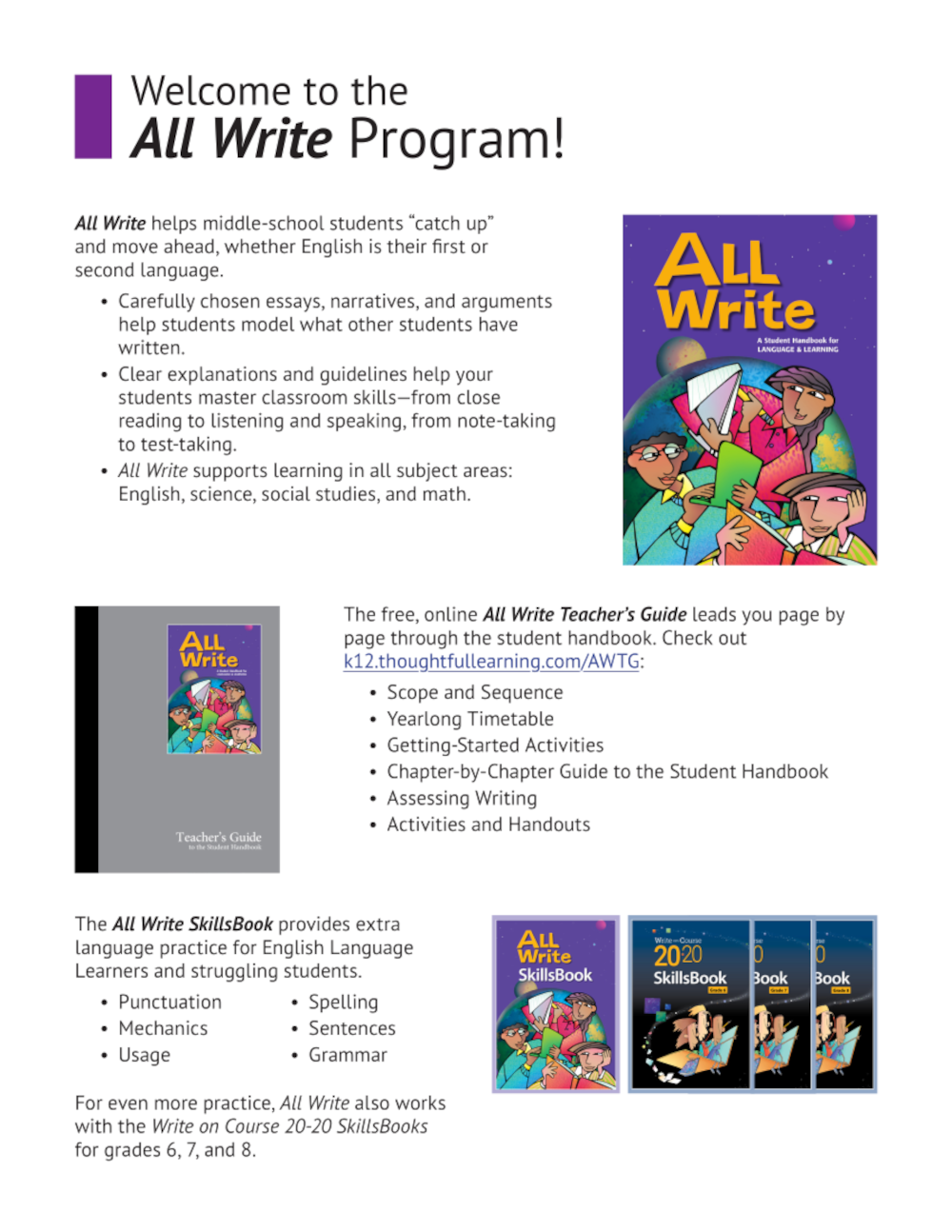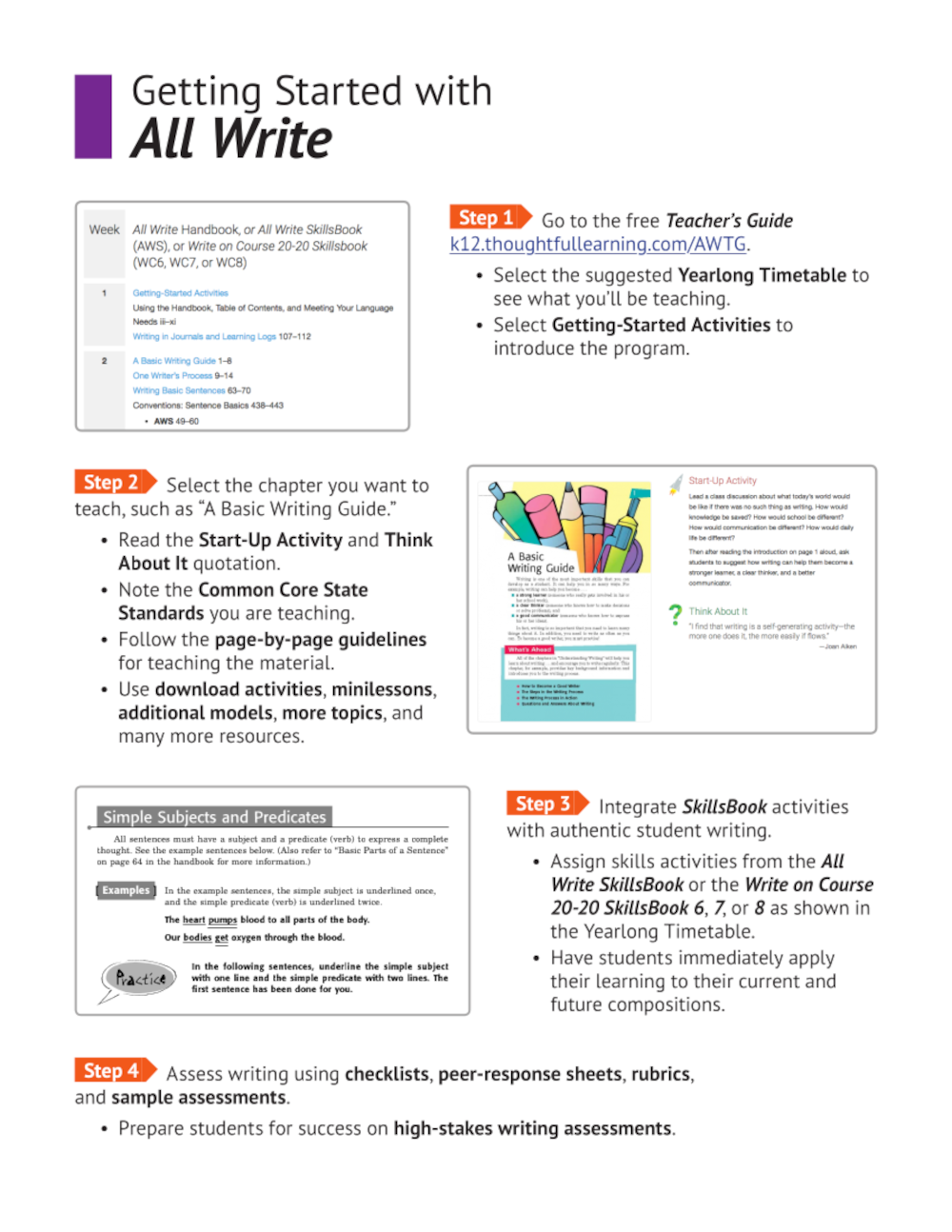How is All Write organized?
The All Write Handbook is specially designed to help struggling middle schoolers and English language learners become effective writers. Accessible language and welcoming graphics teach the language skills students need to catch up and get ahead. The handbook has five main sections, as you can see on the back cover.
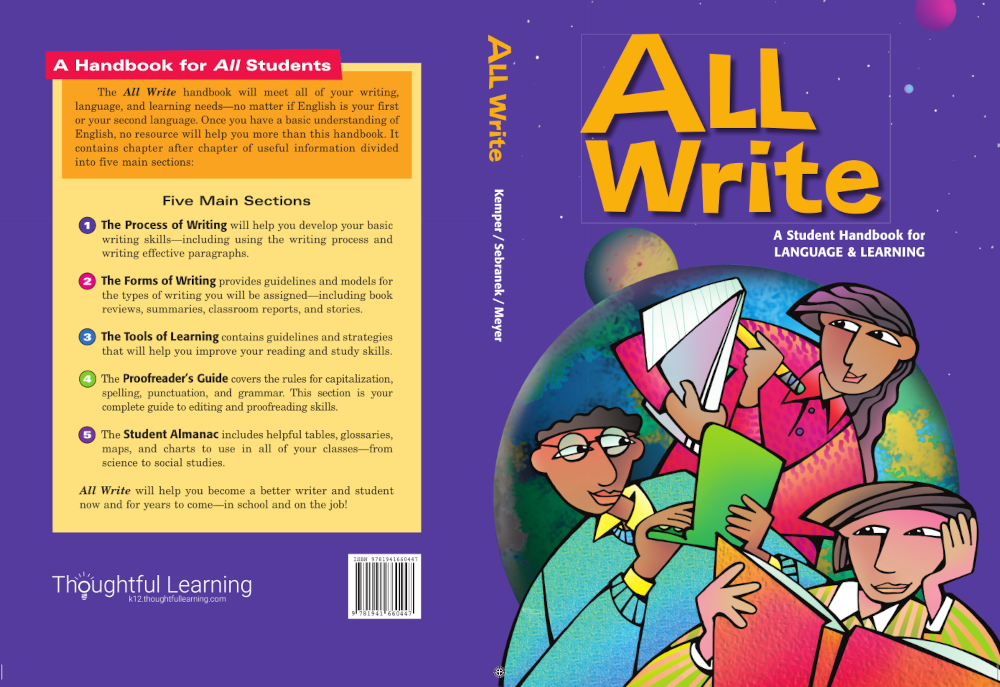
- The Process of Writing section teaches strategies for prewriting, drafting, revising, editing, and publishing. It also covers the basics of sentences and paragraphs.
- The Forms of Writing section teaches how to write the many forms: personal, narrative, explanatory, persuasive, literary, research, and creative. Chapters provide guidelines, models, and checklists.
- The Tools of Learning section teaches skills for reading, listening, speaking, studying, and test taking.
- The Proofreader's Guide provides rules and examples for punctuation, mechanics, spelling, usage, sentences, and grammar.
- The Student Almanac includes exciting pages on language, science, math, history, geography, and government—perfect for writing across the curriculum.
Take a Tour!
Page through the handbook in one of these ways:
What's in the grammar SkillsBook?
The All Write SkillsBook teaches the rules of punctuation, mechanics, spelling, usage, sentences, and grammar, with examples and activities geared specifically to English Language Learners and struggling students. For additional practice, you can assign activities from the Write on Course 20-20 SkillsBooks 6, 7, and 8. Each of these resources includes cross-references to the All Write Handbook.
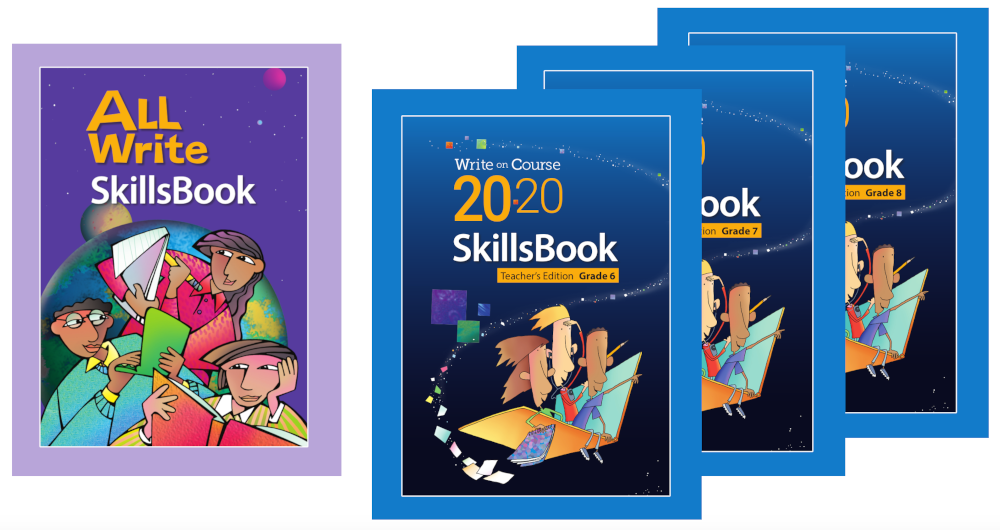
Take a Tour!
Page through the SkillsBook in one of these ways:
What's in the free online Teacher's Guide?
The All Write Teacher's Guide includes a scope and sequence, yearlong timetable, getting-started activities, chapter-by-chapter guide to the handbook, help for writing assessment, research basis, and activities and handouts.
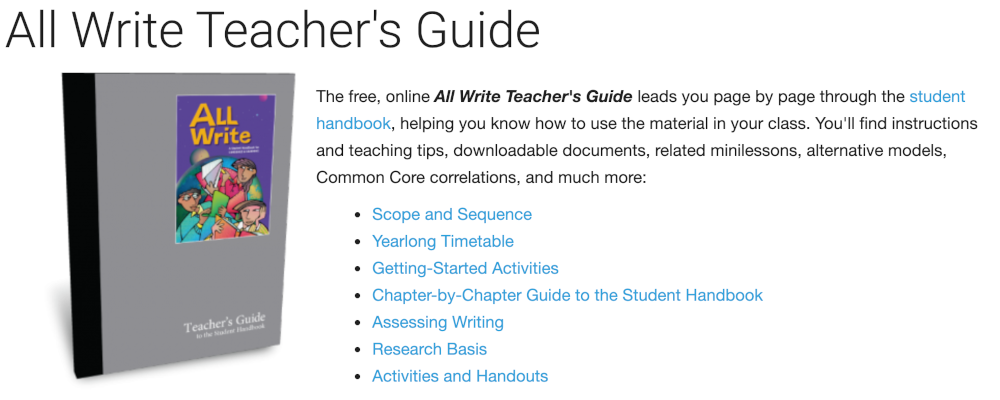
You can get to the Teacher's Guide by going to k12.thoughtfullearning.com and clicking on "Teacher's Guides" in the top banner.

Take a Tour!
Page through the free online Teacher's Guide on any device with Internet access—no sign-in needed.
How do these components work together?
The All Write Handbook is designed to let you choose what you want to teach and when. Instead of marching page by page through a basal, you select the chapters you teach throughout the school year.
Here's one sample way that you might organize the first three weeks of instruction in your classroom, drawn from the "Yearlong Timetable" in the Teacher's Guide:
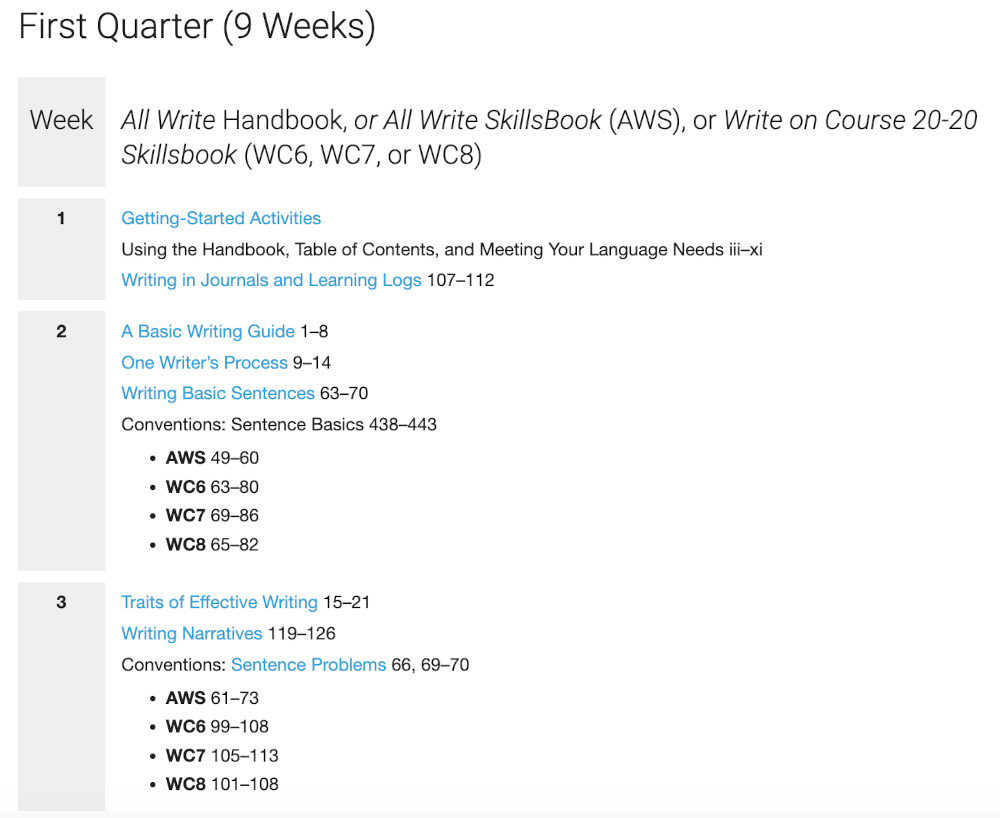
Most numbers represent pages in the All Write Handbook, but those marked AWS represent pages in the SkillsBook. You can provide additional practice using the Write on Course 20-20 SkillsBooks (WC6, WC7, WC8). Here's one suggested teaching plan:
- Week 1: Download "Getting-Started Activities" and distribute them to your students. They can complete the activities in Word or Google Docs, or they can work on paper printouts. These fun scavenger hunts and other activities help them become familiar with their handbooks. Use the table of contents and other opening pages to help students navigate. Teach "Writing in Journals and Learning Logs" to get students rolling with journals.
- Week 2: You can teach "A Basic Writing Guide" and "One Writer's Process" to help students learn the basics of good writing. You can also teach "Writing Basic Sentences" in the handbook. These pages align with activities in the All Write SkillsBook, as well as the Write on Course 20-20 SkillsBooks 6, 7, and 8.
- Week 3: You can teach "Traits of Effective Writing" and then have students begin "Writing Narratives." Students continue their work with sentences combining in the handbook and the SkillsBooks.
How can I get started with these materials?
Download the All Write Program Sheet. The first page provides an overview of what you have just learned about the three components. The second page gives you a simple four-step process for launching the program in your classroom—getting you and your students comfortable with All Wriite.
